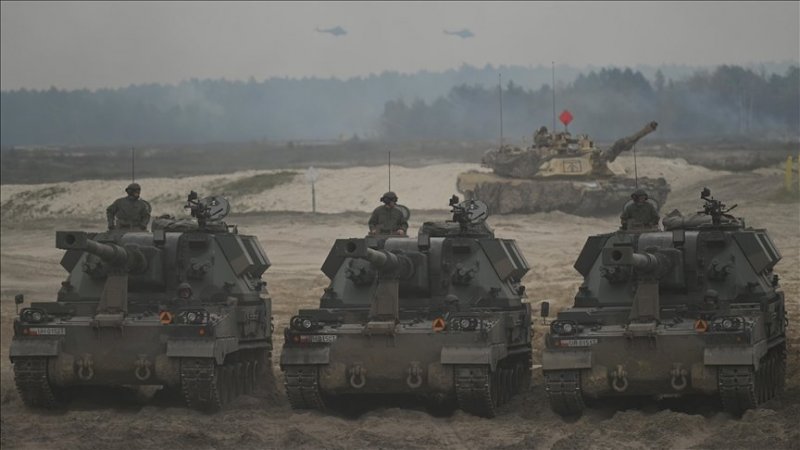During a state visit to Estonia on Tuesday, Polish President Andrzej Duda and Estonian President Alar Karis made a strong call for increased defense spending within NATO, advocating for a minimum of 3% of GDP. They urged allies to raise their commitments in response to the growing security threats from Russia, the much larger country both nations border.
Speaking in the capital Tallinn, both leaders emphasized that current levels of defense investment in Europe are inadequate given the ongoing war in Ukraine and the wider threat posed by “Russian imperialism,” News.Az reports citing foreign media.
Duda reaffirmed Poland’s formal proposal to increase NATO’s minimum defense spending target from 2% to 3% of GDP.
“This is not just a political declaration – it is a historically grounded and realistic necessity,” said Duda.
He noted that during the Cold War, NATO members regularly allocated 3% of their GDP to defense, arguing that today’s threat environment demands a similar level of commitment.
“Three percent should be the new floor, not the ceiling,” he said, adding that Poland is already spending close to 5% and is prepared to support even higher targets if a consensus is reached.
Karis echoed Duda’s message, stressing that Estonia will reach 5% defense spending by next year, in line with defense planning within NATO, the defense alliance both countries belong to.
“This is not a symbolic decision. It is a long-term, conscious investment in our national and collective security,” Karis said.
“Together with Poland, we are setting an example that others in NATO must follow.”
Karis warned that failure to invest now would lead to higher costs in the future. “If we don’t spend enough today, we may end up spending much more when it’s too late,” he said.
The leaders argued that stronger defense budgets are not only necessary for deterrence but also vital for boosting Europe’s defense industry. Both countries support revising EU regulations to allow member states to use European funds for military production and modernization.
“We must develop Europe’s own capabilities, especially in ammunition and heavy equipment,” Duda said.
“Without rebuilding our production base, we will continue to depend on outside suppliers,” he added.
The discussion comes ahead of a NATO summit in The Hague this summer, where allied leaders are expected to debate new defense spending targets. Both presidents expressed hope that the 3% target would gain support across the alliance.
